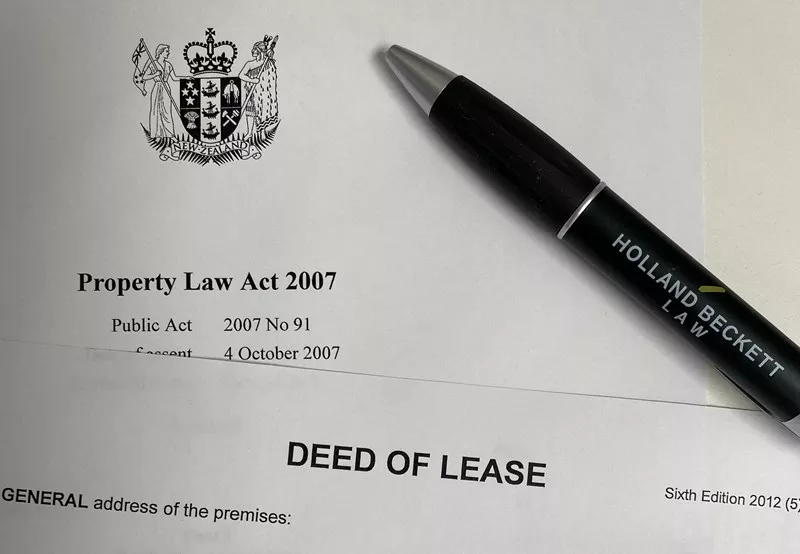Don’t trip on the way in – look both ways before entering into an assignment of lease
In my practice acting for a number of commercial property owners and commercial tenants. It is an insight to see some common pitfalls around assignments of lease. Below I set out a selection which I think are relevant to all parties.
“The sleeper rent”
Too often a tenant in assessing a lease, particularly on the way in, assumes that the rental currently being paid is a market rent and therefore any subsequent review on market review basis will be proportionately small. There is almost always no contractual warranty that if the rent is currently being discounted that this will continue. Therefore if you are taking over an assignment and to be subject to the reviews within, then if the status quo is on discount there can be a nasty surprise at review time. Never assume anything and verify the current rental.
Musical chairs of building improvements – Don’t be caught when the music stops
A very common provision included in most leases is that with the consent of the landlord, alterations or renovations can be made to the building. Usually there is the proviso that at the option of the landlord, it be reinstated at the end of the lease. Even if you are the tenant who completed the work to have to reinstate can be costly and inconvenient. Ideally at the time of the work confirmation should be obtained from the landlord that the right to reinstate will not be enforced (is waived) for particular works. Even worse however, is being the assignee coming into the shoes as tenant only to find that at expiration the landlord wishes things to be returned which can be at significant expense. In most cases it would commercially be sensible for the landlord to retain the works as they stand however that is not always the case. As a tenant entering into a building, thought must be given to these residuary reinstatement provisions which can lie completely dormant until the final shakedown as expiry approaches. It is another classic example of the concept of lease and ‘interest in land’. The relationship is a wider one of the generic ‘landlord’ and ‘tenant’ as opposed to just the specific entities involved at a point in time. Before moving into the hot seat this ongoing nature must be appreciated.
When did the time clock start?
Aside from rent and outgoings, one of the major tenant responsibilities is effective maintenance of the core building and landlord fixtures and fittings during the course of the lease. A tenant cannot in general principles be forced to bring the building to a better state of repair than it was at commencement. However if you are not the original commencement tenant it is essential to consider when the time clock started and what state the building was in at that point. If in doubt have a full and frank discussion with the outgoing tenant and the landlord, together if possible, to clarify the exact position of the landlord on maintenance programme.
The shop front looks good: Take a closer look
The Christchurch situation has served to highlight that while in a lot of cases the landlord tenant relationship can be quite “simple” subject to some peripheral points (such as those ones above), the relationship does not exist in isolation from the surrounding world and indeed surrounding interested parties. The new widely used Auckland District Law Society lease now serves to balance the rights of the parties more neutrally in the case of lack of access such as the case of several commercial tenants in Christchurch after the earthquakes. However the lease still remains devoid of detail on certain other points. Running side by side to this fact is that In the standard ADLS lease there is a provision that notes there is no warranty as to suitability of use in favour of the tenant by the Landlord. The effect if this exists often unconsidered but the implications can be severe. For a particular premises, going in as an assignee, detailed thought must be given to the overall picture. Peripheral requirements such as compliance with occupational safety and health laws, requirements under the Building Act to allow public access, the potential for imposed structural strengthening programmes by local Council, industry specific requirements around holding or using certain substances and general on issues like fire regulations, parking and toilets. To not have one of any number of key functionality issues ticked off can be a huge hassle post taking over a premises. The purpose of these examples is not to be alarmist but rather to emphasise that beyond key commercial terms there is an essential peripheral set of issues that must be considered. To get into a situation as a tenant where fundamentally your business is disrupted, or in a worst case prevented from trading, while still leaving legal argument as to whether your payment and other tenant obligations still remain in full or part is a highly stressful situation.
Don’t look in the rear view mirror forever
While often most generic commercial leases stage rights of renewal around every 3, 4 or 5 years there can on occasion be longer terms provided for. If you have guaranteed these lease obligations, it is important to be mindful that the guarantee obligation will subsist beyond assignment until the then current term expires irrespective of whether you are the then tenant. This is the start point. It is becoming an increasing point of negotiation in commercial leases. However, often with the assignment happening as part of a business transaction and lots going on, it can be easy to overlook, flippantly agreeing to a personal guarantee in terms of the assignment of lease requirements, only for it to be under a significant term and accordingly part of your life either directly or indirectly for the duration. It is a rare legal context where in a lot of ways you are suddenly not in control of your own destiny. Do consider it as a point of negotiation. To limit it to two years rent and outgoings or similar for example or reserve yourself right to retake the lease as of right if the tenant you assign to defaults? There are ways to try and mitigate what can be a potentially long and nervous look in the rear view mirror post assignment when it comes to guarantees. The special category of contract that leases are in my view make them easy to deal with and on the whole to the benefit of both parties. However, the implications can be negative if a wide view is not taken. The message being to not cut corners beyond the core commercial points. Cast the net wide, be methodical, get advice where required. This will ensure post assignment energy can be spent on business not legal wrangles.







